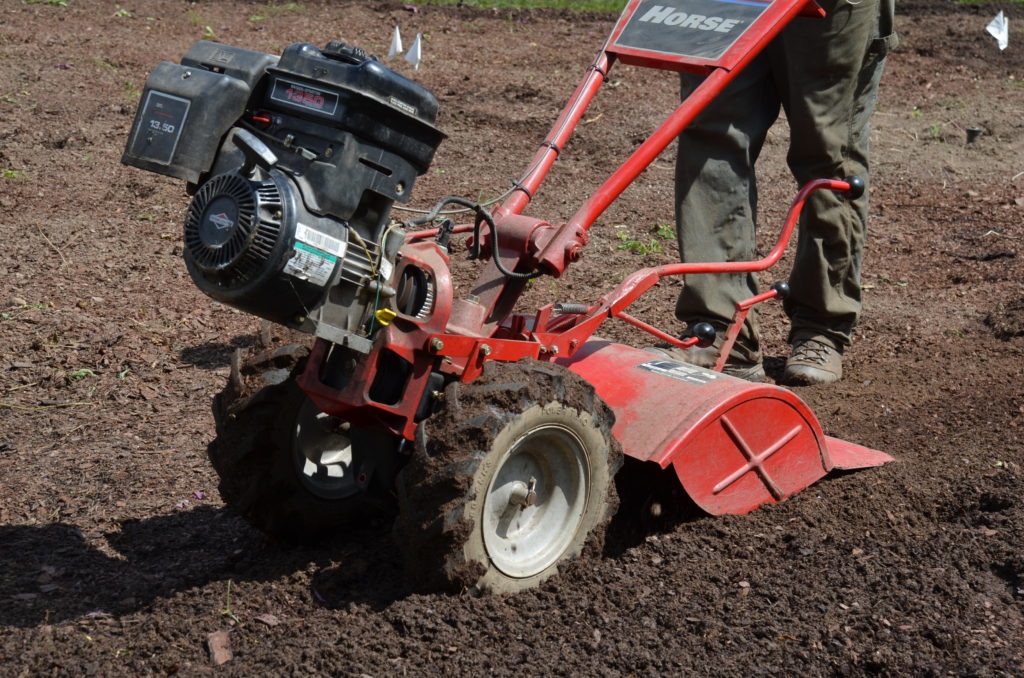Cleaning up vegetable and flower beds requires some thought. Most gardeners desire to get a start on next spring’s clean up in the fall. They may rototill garden beds in fall, particularly if soils are too moist to work in early spring. Turning the soil also kills lots of weeds, including winter weeds which have already already germinated and have been growing through the winter months.

Cut back almost all plant debris: spent flowers, stalks, anything dead. Tender perennials such as pampas grass, lavender, and rosemary should not be pruned back until spring. However, bearded irises benefit being cutback in the fall as the larvae of iris borers make their winter home in the garden debris.
In early fall, use Preen® weed preventer to suppress cool season weeds from sprouting in garden soil. Weeds like chickweed and henbit germinate in the fall, and put on a growth explosion during the mild days of February and March.
Lay a thin layer of mulch over the perennial beds, just an inch or so, to protect any flower bulbs, perennial roots like calla lilies, and prevent soil loss on slopes and tempermental perennials like angel trumpets (Brugmansia), cannas, and elephant ears
Once the garden bed is cleaned up and free of debris, fall is a good time to test your garden soil to prepare for a great growing season come spring. Every 4-5 years, have your soil analyzed to check the pH level and nutrient content. In the spring you will know how much fertilizer to add. Your local Extension Office will offer this soil testing service for a fee.
Based on the soil report, if the soil pH is too acidic, add limestone; too high pH (alkaline), add elemental sulfur or gypsum to increase soil acidity. Independent garden centers and farm supply stores are good places to buy limestone or sulfur to apply in the fall. Winter precipitation and cold temperatures will break down lime and sulfur. Soil pH levels should be adjusted by the time spring arrives
Lastly, take a few minutes in the fall to write down your garden successes and failures over the past growing season. This will help you to plan next year’s garden. New flower or vegetable catalogs will be arriving to the mail.
EXTRA: If you plan to feed birds and other wildlife in winter, do not cut back the seed heads of certain perennials and annuals such as: coneflowers (Echinacea), blackeye Susans (Rudbeckia), globe amaranths (Gomphrena) and zinnias.

 Posted in
Posted in 
